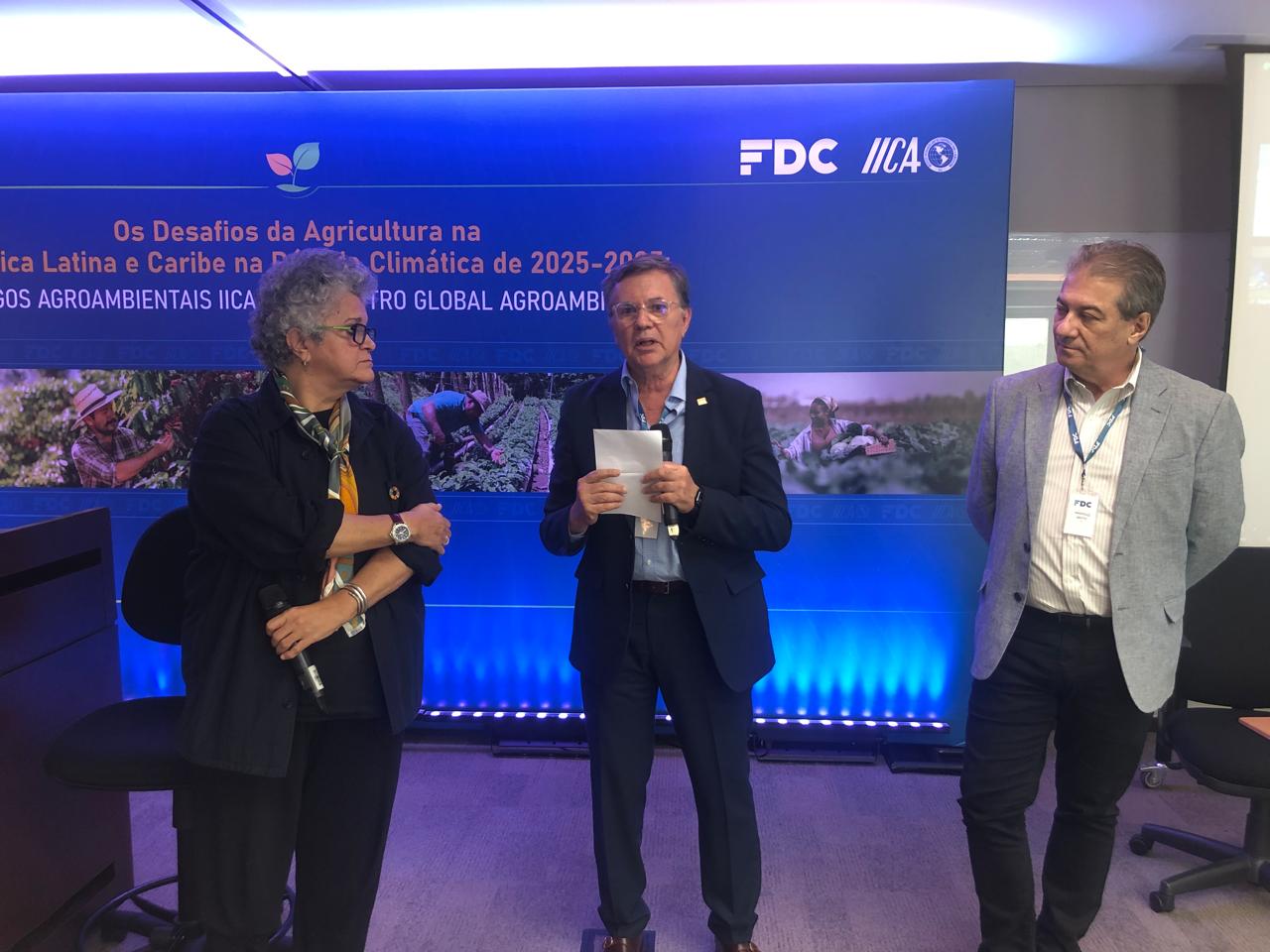The meeting reaffirmed the strategic importance of agriculture, especially in Latin America and the Caribbean, its interaction with science, technology and innovation systems, and its productive and inclusive potential.

São Paulo, April 16, 2024 (IICA). In São Paulo, twenty representatives of Brazil’s powerful agriculture sector and the Director General of the Inter-American Institute for Cooperation on Agriculture (IICA), Manuel Otero, discussed the main challenges agriculture will face in the 2025-2035 “climate decade,” and the inclusion of crop and livestock farming on the agendas of the G20 (whose presidency this year is held by the Government of Brazil) and the COPs, the summits of the UN Framework Convention on Climate Change (UNFCCC).
Organized by IICA and the Global Agro-Environmental Center of the Fundação Dom Cabral (FDC), the discussion was coordinated by the Special Advisor to the General Director and IICA’s “sherpa” for COP29 and COP30, the former Minister of Environment of Brazil, Izabella Teixeira; and Marcello Brito, coordinator of the FDC Center and Executive Director of the Consórcio da Amazônia Legal.
The Consortium is made up of the nine Brazilian Amazon states whose mission is to speed up the sustainable development of the Amazon in an integrated, cooperative manner.
In addition to the presidents and executive directors of Brazil’s chief agricultural and financial enterprises, the participants included Ambassador André Aranha Corrêa do Lago, Secretary for Climate, Energy and Environment at Brazil’s Foreign Ministry; Renata Miranda, Secretary for Innovation, Sustainable Development, Irrigation and Cooperatives at the Ministry of Agriculture; former Minister of Agriculture Roberto Rodrigues; respected researcher Eduardo Assad; and Marcos Jank, senior professor of agribusiness at INSPER, one of the country’s leading business schools, where he also coordinates the “Insper Agro Global” center.
Director General Otero was accompanied by other IICA officials, including Special Advisor Jorge Werthein and the organization’s representatives in Argentina and Brazil, Fernando Camargo and Gabriel Delgado, respectively.
The meeting reaffirmed the strategic importance of agriculture, especially in Latin America and the Caribbean, its interaction with science, technology and innovation systems, and its productive and inclusive potential. The discussions focused on specific topics such as the global climate agenda, the financing of climate action, agricultural research priorities, the situation of crop and livestock farming in the Amazon, infrastructure in the region, and the necessity of aligning the common features of the agendas of the COP, the BRICS and the G20, emphasizing the nexus between trade and food security.
Also highlighted were the opportunities that exist in the region’s agricultural trade with Asia, and the need to discuss the relationship between trade, food security and climate within the G20.
The participants acknowledged the fragmented geopolitical situation, ineffectual public policies, weakening multilateralism, growing environmental protectionism, and the reemergence of an agenda that appeared to have reached its conclusion in the 1990s.
Other aspects addressed during the dialogue, which lasted approximately three hours, had to do with the positioning of agriculture in its relationship with food, climate and energy security, within a framework of what is referred to as “climate urgency,” which also has an important social dimension related to the fight against hunger and poverty.
The participants also spoke about COP30 as “the nature COP” as opposed to “the rainforest COP,” traceability, natural resources, and the inclusion of family farming into the agenda.
More information:
Institutional Communication Division.
comunicacion.institucional@iica.int











